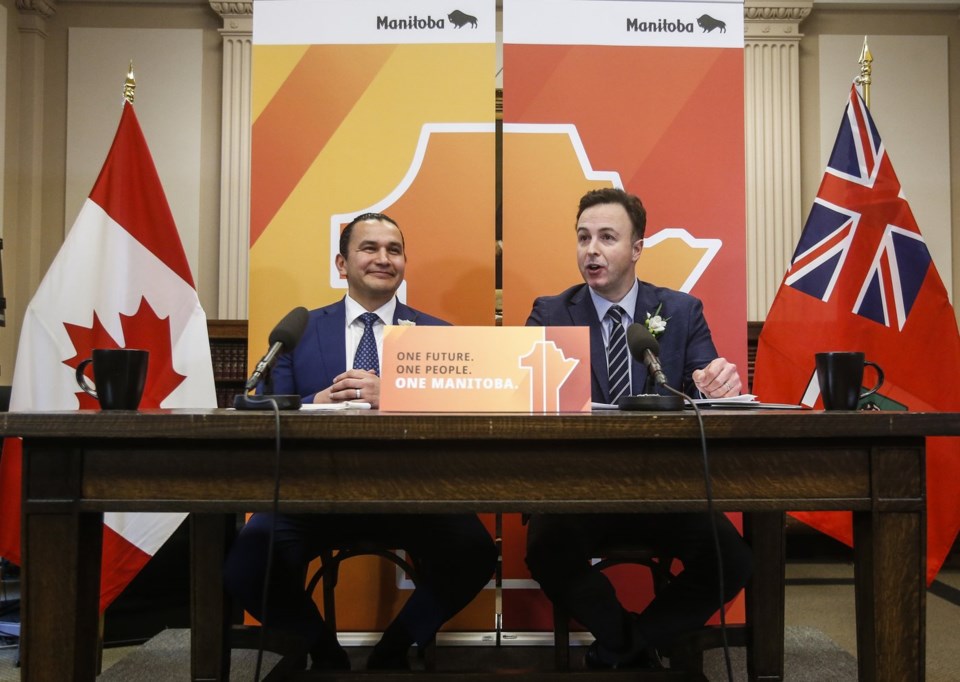WINNIPEG — With questions being raised about equalization payments to the provinces, Manitoba is seeking predictability, with room for increases, from federal parties when it comes to all federal transfers.
Premier Wab Kinew said Tuesday he raised the issue in a meeting in March with federal Conservative Leader Pierre Poilievre.
"The assurances that Mr. Poilievre and that other leaders who are auditioning for potential future government (and) predictability from the existing administration — we welcome public commitments to that effect," Kinew said following a speech to the Manitoba Chambers of Commerce.
"I made the case (to Poilievre). I said, 'Here is what I want to do in terms of moving us from have-not to have status. In order for us to get there, we need stability and predictability on transfer payments.'"
Manitoba saw its federal transfers, which include payments for health and social programs, rise by more than $900 million this year. The biggest increase came in equalization payments, which are given to poorer provinces according to a complex formula that measures fiscal capacity.
Manitoba receives higher federal transfer payments per capita than all other provinces outside of the Maritimes, according to figures from the federal Finance department. Equalization alone is forecast to be worth $4.3 billion this fiscal year — roughly 18 per cent of all Manitoba government revenues.
Equalization has come under fire from politicians including Alberta Premier Danielle Smith, who has said it's unfair and called for changes.
The federal government has committed to maintaining the current equalization formula until 2029, while Poilievre said in March, after his meeting with Kinew, that the Conservatives would outline their position in the next election campaign.
Kinew said he would like to see the formula for all transfer payments maintained along with increases that take into account inflation and population growth.
In his speech to the business group, Kinew said he would like to see Manitoba become a have province by boosting economic growth, increasing the labour force and stemming the tide of young workers leaving for other provinces.
He said becoming a have province — something discussed by previous premiers — is a "very ambitious" goal.
The premier also touted the NDP government's changes to education property taxes.
The province is eliminating rebates on residential and commercial properties and enacting a flat $1,500 credit for residential properties occupied by their owners in a move that would raise an extra $148 million a year in provincial revenues.
Kinew said while the changes will see some property owners pay more, the credit means savings for many homeowners, especially in rural and northern areas. People in lower-value homes will save the most, he said, and that should allow more people to enter the housing market.
"This is going to represent a huge step forward in making home ownership more affordable, not just inside the (Winnipeg) perimeter but across the province of Manitoba," he said.
This report by The Canadian Press was first published May 28, 2024.
Steve Lambert, The Canadian Press


